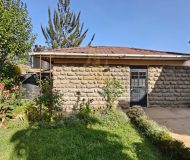
Steps To Buying Real Property In Kenya
The case, however, is that many Kenyans indulge in land transactions with such reckless abandon that they disregard the need to maintain the barest modicum of due diligence. That is when they end up being defrauded. So here is the process explained step by step to help you know what to do next time you want to buy property in Kenya.
1. Identify the property
The first step is obviously finding the property (land, house etc) that interests you. You can do this by contacting the vendor directly or by enlisting the services of a reputable real estate agent. When you have identified the property you want to buy it is important to conduct a site visit to ensure that the property and its surroundings meet your specific needs.
2. Conduct a search
The buyer should obtain from the seller a copy of the title of the land and a copy of the national identity card of the seller. The copy of the title will be used to conduct a search of the land at the lands office while the copy of the national identity card will be used to verify the identity of the seller at Registration of Persons Bureau.
In order to conduct a search, one is required to file a search application form at the lands registry and attach a copy of the relevant title deed. The search application fee (Kshs 500) is also required to be paid. The search results are usually ready for collection from the lands registry 2-3 days after application. The results usually reveal details such as:
- The registered owner of the property
- The size of the property
- The encumbrances registered against the title if any, such as courts orders, prohibitions, caveats and cautions
As an additional measure, the buyer should check whether the land is included in the Report by the Commission of Inquiry on the Illegal and Irregularly Allocated Land (Ndung’u Land Report). The buyer should also enlist the services of a registered surveyor to confirm the beacons on the land and to conduct additional checks at the Survey Department.
3. Negotiation & Sale Agreement
The process of price negotiation should begin only when the preliminary due diligence has been done. Any agreement for the sale of land that is reached without conducting a search amounts to courting trouble. The buyer should, either by himself or with the help of his lawyer, engage the seller or his estate agent for purposes of discussion and agreeing to the terms of sale including the price and the terms of payment. It is customary for the buyer to pay a 10% deposit and then the balance of the purchase price upon completion of the sale transaction. The deposit is usually considered as a show of intention to see the deal through.
An important question that arises at this point is where the deposit money is to be held as the sale process proceeds. A common practice is for the money to be held either in a joint account in the name of the seller’s and the buyer’s advocates or with an independent escrow agent.







